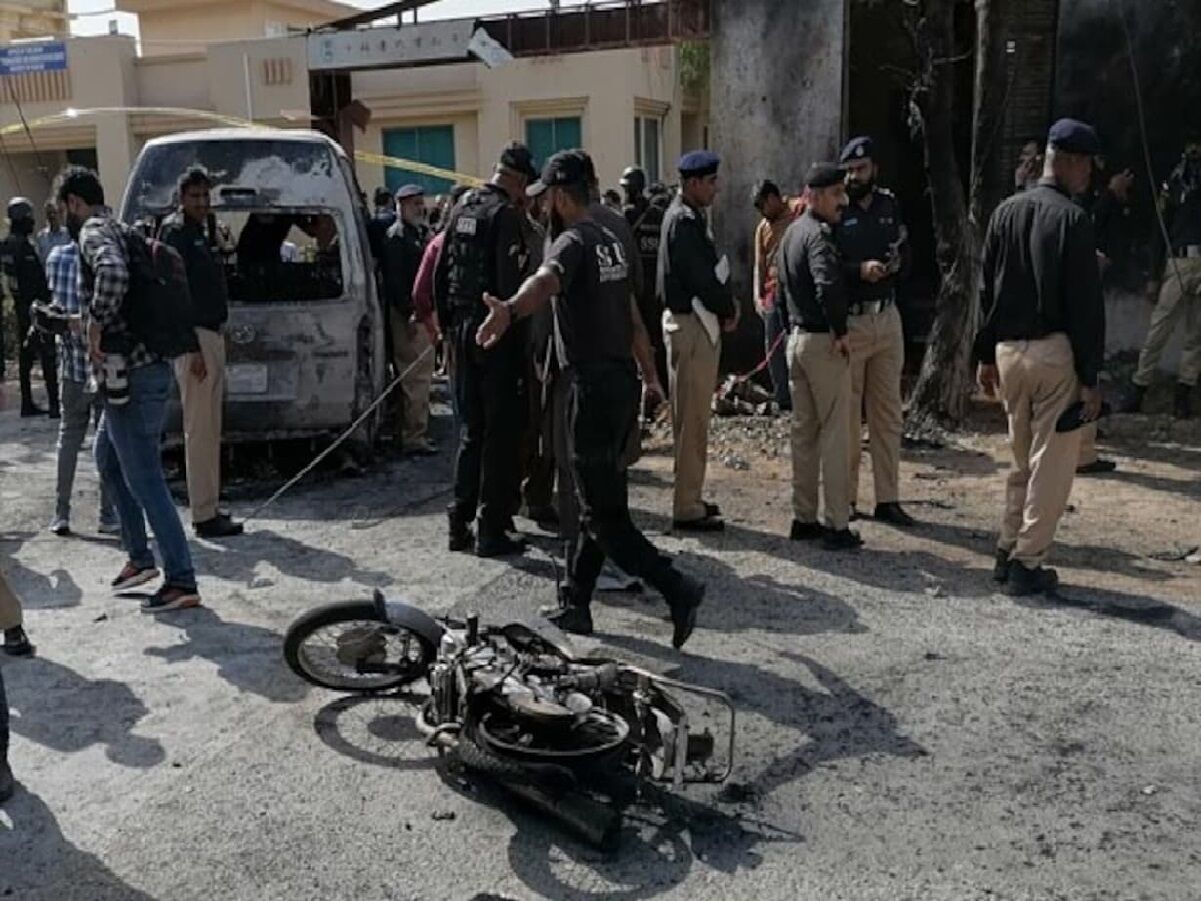Replete with challenges
Karachi bombing indicates rising resentment among the Baloch population against China, which presents a challenge before the novice administration in maintaining its foreign ties

The April 26 dastardly terror attack inside the bustling Karachi University Campus has rocked the Pakistani security establishment more because three Chinese nationals — in addition to four Pakistanis — perished in the suicide attack. Significantly, after a silence of over ten days, the US State Department came out condemning the attack, describing it as a true affront to mankind. It deplored the assault as it was inside a university, a temple of learning. The US chose to condemn, albeit late, as it does not want to be seen to be silent lest it is misunderstood that it did not condone terror in Pakistan when its relations are not at their best.
Coming to the nitty-gritty of the attack, the deceased Chinese nationals have been identified as the directors of the Confucius Institute Huang Guiping, Ding Mupeng and Chen Sai. The immediate implication of the bombing rattled the new Pakistani political dispensation which fears a dent in the Sino-Pak relations. This was visible in the offering of profuse regrets by the Pakistani President, Prime Minister, Foreign Minister and others to the Chinese government, assuring that similar incidents would not recur.
The attack was a terrible breach of security as a burqa-clad woman, Shari Baloch (30) — a teacher with a postgraduate degree in biological sciences and mother of two — detonated the bomb and became the first female suicide bomber of the Baloch Liberation Army (BLA). Crucially, the attack signifies four important features: (a) Dissent among Baloch separatists is now at the peak, driving a female erudite to take to suicide bombing; (b) the ire against the Chinese still persists among Baloch radicals who are determined to strike at their will; (c) the Pakistani intelligence is in tatters as they failed to gather intelligence on the Baloch activists and weren't able to appreciate the happenings among the separatists quarters, and (d) the Chinese are becoming increasingly wary of the Pakistani security system which has failed to protect the Chinese working in various capacities in different projects within Pakistan.
In the meantime, it is also critical for the Pakistani security outfits to fathom the simmering tensions among the Balochs who are now out in the open to target the Chinese to put pressure on the new government to distance itself from the CPEC project passing through parts of Balochistan. Apart from this, the Baloch people have been agitating for a long regarding more autonomous rights, as they feel discriminated against when compared to people belonging to the other Pakistani provinces. Such tumult is likely to increase in the coming days. More importantly, a terror attack by an educated female suicide bomber who was also a homemaker is expected to inspire other Baloch women to take recourse to such extreme measures in the not-so-distant future.
The new Pakistani government, under Prime Minister Shehbaz Sharif, is not even one month old in power and has started struggling in tackling terror challenges. Its beginning has not been on a very favourable note as it had to deal with anti-government slogans during the Prime Minister's and some of his ministers' recent trip to Saudi Arabia. The political confusion got confounded when the government, acting under panic, named Imran Khan as an accused in the slogan-shouting case, thus complicating other tasks at hand, including the Karachi suicide bombing.
Meanwhile, detractors of Shehbaz Sharif and his teammates have questioned the wisdom of the ruling coalition regarding the appointment of a political novice like Bilawal Benazir Bhutto as the Foreign Minister, who has zero experience of handling any issue of external affairs. The PPP, which is a significant component of the ruling political establishment, is deriving solace from the fact that Bilawal's maternal grandfather, Zulfiquar Ali Bhutto, was also Pakistan's Foreign Minister at a young age. However, little do they realize that it was Bhutto only who committed innumerable follies leading Pakistan into a deep mess, paving the way for Gen Zia Ul Haq to assume absolute powers and eventually getting hanged to death. Bilawal could be advised to take a few lessons from the pages of history, taking into account his mother Benazir's and her father's violent deaths within a period of barely 28 years. Tasks at hand for Bilawal are really tough as he has to strike a delicate balance between maintaining a cordial relationship with China and working overtime to normalize fences with the US which, of late, has not been so warm to Pakistan. Other than this, the new Foreign Minister has to reset its relations with Afghanistan which has been strongly criticizing Pakistan for its indiscriminate aerial attacks in Afghanistan, leading to the worst relations between the two neighbours.
Apart from Bilawal, other ministers in the Sharif cabinet, especially the Minister for Interior, have critical matters to address — the political direction with clarity of mind, internal terror challenges, religious fundamentalism, getting out of the FATF grey list etc. Perhaps the new regime did not factor these issues and formed a cabinet in a hurry. In the absence of any cohesion or effective coordination, things might pose a greater threat for the political survival of the government in the 75th year of its independence. Indeed, an uphill task lies ahead!
The writer is a retired IPS officer, a security analyst and a former National Security Advisor to the PM of Mauritius. Views expressed are personal



